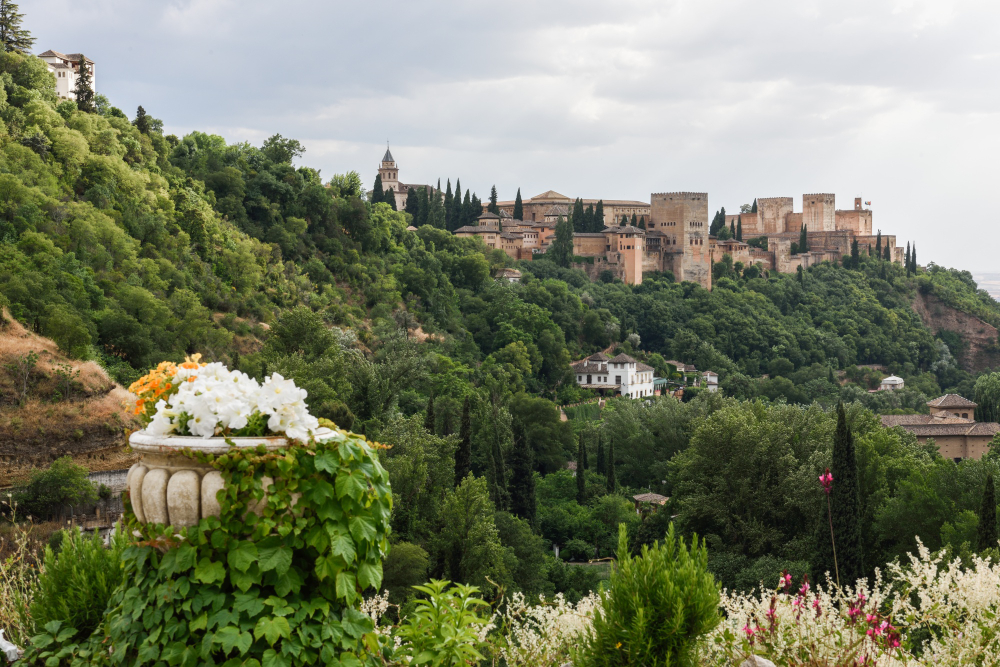Yes, it is absolutely legal to live off-grid in Spain. Across the country, there are tens of thousands of properties not connected to public utilities such as water, gas, or electricity, and they function independently using alternative systems.
The concept of living off-grid is often misunderstood—many assume it means occupying abandoned or makeshift buildings. However, when we talk about off-grid living in a legal context, we’re referring to dwellings that comply with local laws but choose to operate independently from public infrastructure.
The legal framework in Spain supports off-grid living, provided you respect property laws, building codes, and municipal regulations. This article aims to provide a clear understanding of how you can live off-grid legally in Spain, what regulations to consider, and how to ensure a smooth process from property selection to habitation.
Understanding Solar Energy Laws and Off-Grid Power
Spain has undergone significant changes in its energy regulations. The once controversial “sun tax” that discouraged self-generated solar power has been abolished. Now, generating your electricity via solar panels is entirely legal.
For those completely disconnected from the grid, you have the freedom to install and use your energy systems without any obligation to register with a utility provider. However, if your home remains connected to the national grid, regulations require either a complete disconnection or the installation of a legal grid-tied system, which allows you to sell or bank excess energy.
Some homeowners opt to keep their grid connection as a backup while operating their homes off solar energy most of the time. However, solar installation companies may be unwilling to sign off on systems that don’t meet the full legal criteria. This could pose problems during a resale, as buyers often seek legally documented energy installations.
Property, Land Use, and Building Regulations
Land laws and building permissions vary widely across Spain and are largely controlled by individual municipalities. The first essential step when considering a property is to obtain its cadastral reference, a unique identifier for land parcels in Spain. With this reference, you can access public records and legal classifications through Spain’s official cadastral system.

Once you have this information, it’s crucial to visit the local Ayuntamiento, or town hall, and make specific inquiries. You should confirm whether you can legally register your residence at the property, a process known as empadronamiento.
This registration is vital for accessing various public services and completing bureaucratic procedures. While empadronamiento doesn’t necessarily mean your home meets all legal habitation standards, the town hall’s willingness to issue this document is a key indicator of your property’s viability.
You’ll also need to ask whether you can build, renovate, or convert existing structures on the land. Permissions vary not only by region but also by specific features of the land, such as proximity to protected areas, previous wildfire zones, or floodplains.
Any plans you have must be confirmed in writing by the local authorities, and in many cases, you may need the assistance of an architect to outline your intentions in a professional proposal. It’s strongly advised to get independent verification rather than relying solely on real estate agents or sellers.
Lastly, ensure that there are no infrastructure or industrial developments planned nearby that could impact your quality of life. Future construction projects, such as power lines or solar parks, could alter the landscape dramatically. The town hall can provide you with this information.
The Role of the Habitation Licence
Known in Spanish as the Licencia de Primera Ocupación, the habitation licence plays a vital role in the legality and usability of a property. Dwellings constructed after 1951 are required to have this licence, which certifies that they comply with building regulations and are suitable for living.

For older properties, the licence may not have been required originally. However, if significant renovations are carried out on such homes, you are obligated to apply for one.
This licence is often a prerequisite for connecting to public services, obtaining residency registration, and even applying for grants. Without it, you might face difficulties selling the property, renting it out, or using it as a legal address.
Even if your property operates entirely off-grid and doesn’t require utility hookups, having a habitation licence ensures a stronger legal standing and better long-term flexibility.
If the property lacks this documentation, it may be because renovations were done without proper permits, or the work was incomplete. In such cases, it’s wise to bring the property up to standard, seek the appropriate permits, and initiate the licensing process. Authorities require that once renovation work is completed, the homeowner must apply for the licence.
Any construction, whether minor or major, must be declared to the town hall. Minor work often involves a simple online declaration and a tax payment based on estimated costs.
Larger projects require detailed applications, and in some cases, professional certification, especially for electrical and structural work. Skipping this process can lead to fines or even demolition orders in extreme cases.
Importantly, the absence of a habitation licence does not automatically render a home illegal. There are valid reasons a property might not have one, especially if it hasn’t been renovated. However, undertaking major changes without the proper documentation can jeopardize the property’s legal standing.
Environmental Factors: Climate and Sustainability
While Spain offers abundant sunshine, ideal for solar energy, climate change poses real challenges, particularly in the south and central regions. These areas increasingly face extreme heat, droughts, and forest fire risks.
When selecting a location for your off-grid home, consider environmental factors carefully. Access to a stable water source and defensible space around your property are crucial.
That said, for many people, the ability to produce their food, generate energy, and live in harmony with nature makes Spain one of Europe’s top destinations for off-grid living. The climate allows for productive gardens, efficient solar energy systems, and extended outdoor living.
Final Thoughts: Plan Carefully, Consult Experts
Living off-grid in Spain is not only legal—it can be deeply fulfilling. But it’s not a path to rush into. Each property, region, and municipality has its own rules. The best way to ensure a smooth journey is to approach the process methodically.
Engage a lawyer who works independently of the estate agency. Seek professional advice from architects or engineers for any building or renovation work. Make the town hall your first stop for every decision, from purchasing to construction to legal paperwork.
Off-grid properties often remain on the market for a long time, so take your time. Patience and thorough research will pay off with a legally secure, sustainable lifestyle in one of Europe’s sunniest and most welcoming countries.





[…] Spain’s sun-soaked south is a paradise for those craving year-round warmth and diverse terrain. Andalusia boasts picturesque landscapes from mountains to coastal cliffs, perfect for sustainable living setups like solar-powered homes. The laid-back culture and lower cost of living sweeten the deal, making it an attractive choice for off-gridders seeking sunshine and sustainability. […]